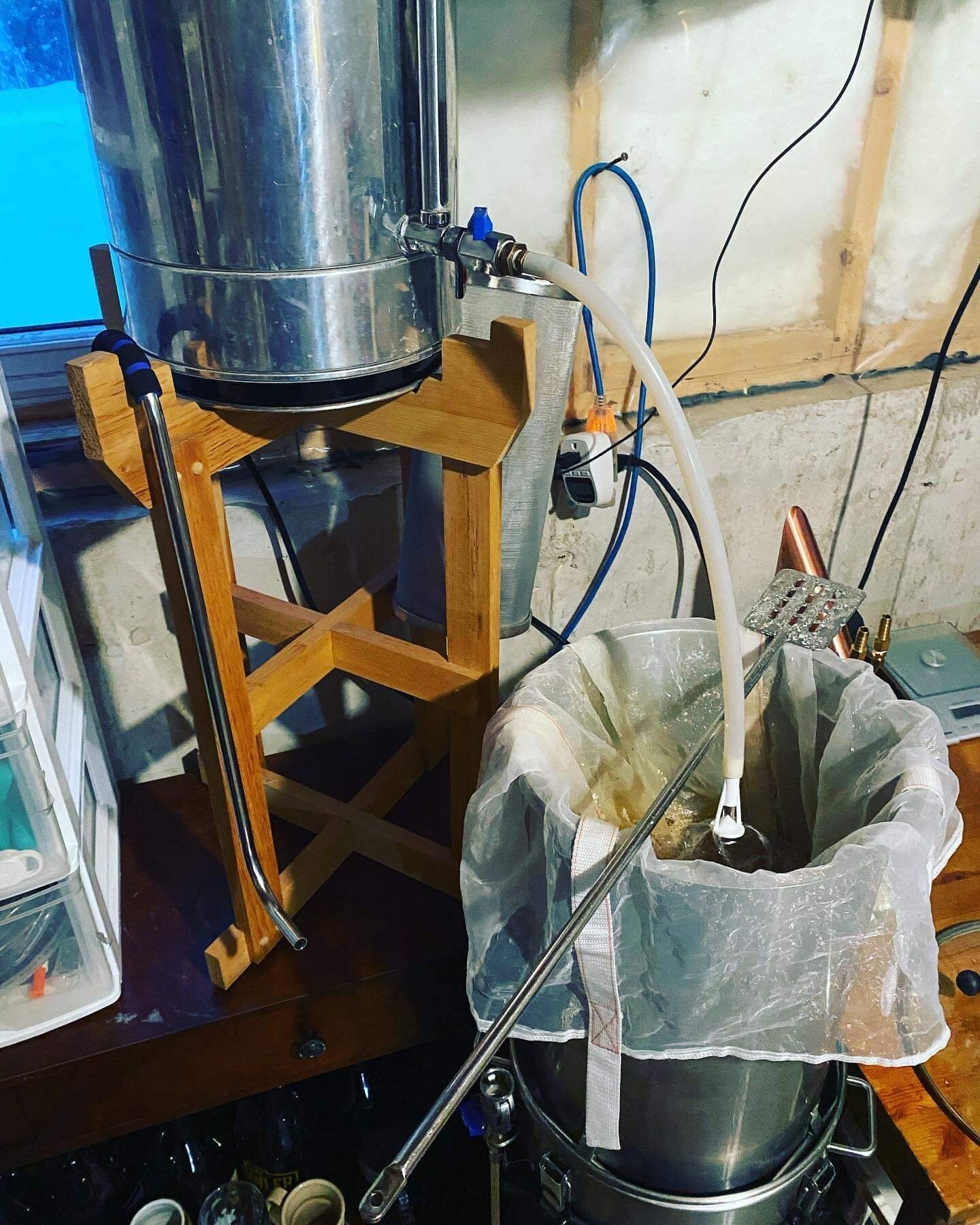There’s no reason to hot sparge with BIAB. I did a test one time on my setup, and the sugars available from a warm (but not hot) sparge water to be about 0.012 OG. It wasn’t as much as you think.
If you are going to rinse the grains, just use ambient temperature sparge water. Once in my beginners insanity I figured I’d heat the sparge water to near boiling. I thought it would speed bringing it all up to boil. WRONG!
All I did was extract a bunch of tannins from the husks which produced a batch of phenolic beer. I ended up calling it a “Belgian” because of that, but was a total disaster.
So, just rinse it cool, if you are worried about efficiency, just add a handful of more grain to your mash!



































![Craft A Brew - Safale S-04 Dry Yeast - Fermentis - English Ale Dry Yeast - For English and American Ales and Hard Apple Ciders - Ingredients for Home Brewing - Beer Making Supplies - [1 Pack]](https://m.media-amazon.com/images/I/41fVGNh6JfL._SL500_.jpg)























